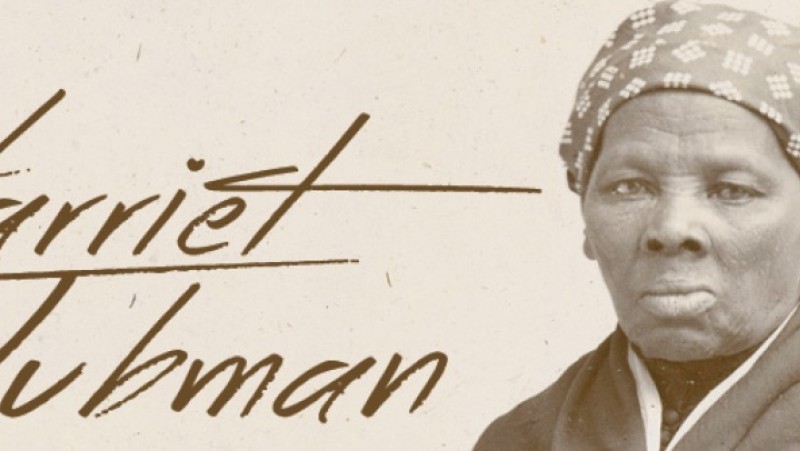
By Njeri Clement
Director of Cultural Fluency, Equity, and Inclusion
“Every great dream begins with a dreamer. Always remember, you have within you the strength, the patience, and the passion to reach for the stars to change the world.”
~Harriet Tubman~
During the month of February, Americans celebrate Black History Month to recognize, and learn more about the significant contributions made by black men and women who helped shape this country and who continue to inspire and fight for our common good. This month, I specifically want to acknowledge Harriet Tubman, an African American woman leader who not only paved the way for all women, but who displayed bravery and integrity in her pursuit of breaking barriers particularly for women of color (Ellevate, 2021). Born into slavery as Araminta Ross in Bucktown, Maryland, in the early 1820s, Tubman worked for the Union army as a nurse, a cook, and a spy (America’s Library, n.d.).
In their book, The Leadership Challenge, Jim Kouzes and Barry Posner (2017) highlight:
- modelling the way,
- inspiring a shared vision,
- challenging the process,
- enabling others to act,
- encouraging the heart,
as behaviors and practices of exemplary leadership (Kerrigan, 2018). To link oneself with the masses, one must act in accordance with the needs and wishes of the masses, such is the basic method of leadership demonstrated by Tubman in her activism efforts (Burns, 2012). She is considered a transformational leader for of her commitment the equality of all people, black or white, male or female, and her inclination to look out for others instead of her own interests (Bonaparte, 2015). Transformational leaders motivate and inspire followers by paying special attention to their needs for achievement and growth by acting as coaches or mentors (Riggio & Bass, 2006). Tubman demonstrated the practices of exemplary leadership by escaping slavery and leading slaves via the Underground Railroad to Free states and Canada, hence becoming known as Moses, a reference to the biblical figure who led his people from slavery (Lichtenwalner, 2017). She is considered the first African American woman to serve in the military as she to lead both white and black soldiers in an armed expedition early in the civil war, which freed an estimated 700 slaves, including her parents (Ellevate, 2021; Library of Congress, n.d).
Biblical beliefs helped Tubman form a distinct vision for a better world. A vision she effectively shared with other African American slaves; her befriended prominent abolitionists; and intellectuals, white and black, who financially supported her cause (Blakemore, 2021). Through the leadership of Moses, Tubman could see the importance of guiding people out of bondage. By getting connected to a network of reformers who were involved in the women’s suffrage movement, she set to work by touring and giving speeches about her own experiences as a female slave and as the liberator of those born in slavery (Harriet Tubman Historical Society, n.d.). After nearly 100 years the women’s suffrage movement led to the right to vote for women in the United (History.com Editors, 2021).
Tubman’s humanitarian work triumphed with the opening of the Harriet Tubman Home for the Aged, located on land she donated, allowing her vision of making life better for those she served to continue even after her passing (Kerrigan, 2018). Many of the sites associated with Tubman’s activist years can be visited along the Harriet Tubman Byway in Maryland (Advisory Council on Historic Preservation, 2018). From relationships with her family, prominent abolitionists and intellectuals to her deeply-rooted religious convictions, Tubman was able to achieve many amazing feats of bravery. She served others, fought oppression, and made a difference in the world due to her caring attitude and competency to lead. Her life and legacy reminds us that internal forte and courage are beacons to what is possible when we dedicate ourselves fully to a noble cause.
Pneumonia took Harriet Tubman’s life on March 10, 1913, she was given a military burial with honors, and today her legacy lives on.
More Information:
Harriet Tubman National Historical Park in Auburn https://www.nps.gov/hart/index.htm.
Harriet Tubman Byway in Maryland: http://harriettubmanbyway.org/.
References
- Advisory Council on Historic Preservation. (2018, March 27). Women’s history month - Harriet Tubman tour | Advisory council on historic reservation. https://www.achp.gov/news/womens-history-month-harriet-tubman-tour
- America’s Library. (n.d.). Tubman during the civil war. https://www.americaslibrary.gov/aa/tubman/aa_tubman_spy_1.html#:%7E:text....
- Bass, L. (2009). Fostering an ethic of care in leadership: A conversation with five African American women. Advances in Developing Human Resources, 11(5), 619-632. Doi: 10.1177/1523422309352075
- Blakemore, E. (2021, May 4). Harriet Tubman—facts and information. National Geographic. https://www.nationalgeographic.com/history/article/harriet-tubman-risked-everything-enslaved-americans
- Bonaparte, Y. L. (2015). A perspective on transformative leadership and African American women in history. A Perspective on Transformative Leadership and African American Women in History, 8(2), 1–7. http://scholar.valpo.edu/jvbl/vol8/iss2/4
- Burns, J. M. (2012). Leadership. Open Road Media. Ellevate. (2021, February 18). Black history month: #FemaleRoleModel. https://www.ellevatenetwork.com/articles/7992-black-history-month-femalerolemodel
- Harriet Tubman Historical Society. (n.d.). Harriet Tubman and Women’s Rights : Harriet Tubman. http://www.harriet-tubman.org/women-rights-suffrage/#:%7E:text=As%20a%20woman%20who%20had,under%20the%20bondage%20of%20slavery
- History.com Editors. (2021, February 23). Women’s suffrage. HISTORY. https://www.history.com/topics/womens-history/the-fight-for-womens-suffrage#:%7E:text=The%20women’s%20suffrage%20movement%20was,the%20movement%20more%20than%20once.
- Kerrigan, E. (2018, June 22). Learning from history: Harriet Tubman and leadership. Integris Performance Advisors. https://integrispa.com/learning-from-history-harriet-tubman-and-leadership/
- Kouzes, J. M., & Posner, B. Z. (2017). The leadership challenge: How to make extraordinary things happen in organizations (J-B Leadership Challenge: Kouzes/Posner) (6th ed.). Jossey-Bass.
- Library of Congress. (n.d.). Harriet Tubman promotes women’s suffrage | A movement at odds with itself | Seneca falls and building a movement, 1776–1890 | Explore | Shall not be denied: Women fight for the vote | Exhibitions at the library of congress | Library of congress. The Library of Congress. https://www.loc.gov/exhibitions/women-fight-for-the-vote/about-this-exhi...
- Lichtenwalner, B. (2017, April 29). Servant leadership profile: Harriet Tubman - black history month.
- Modern Servant Leader. https://www.modernservantleader.com/servant-leadership/servant-leadership-profile-harriet-tubman-black-history-month/
- Whitehead, K.W. (2014). Beyond myths and legends: Teaching Harriet Tubman and her legacy of activism. Meridians: Feminism, Race, Transnationalism, 12(2), 196-218.